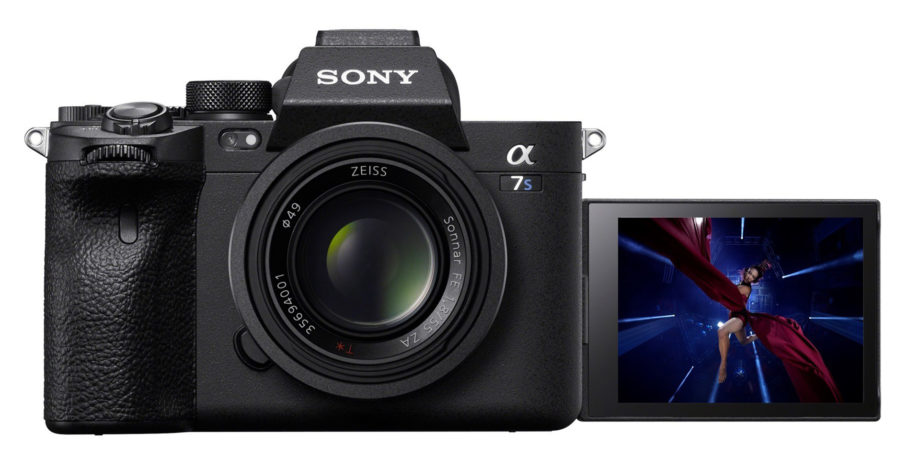
- Sony has unveiled the Alpha a7S III, a full-frame mirrorless camera aimed at video creators.
- It captures 4K video at 120FPS and can record video for over an hour at a time.
- A new sensor will likely help it thrive with low-light photography.
Sony has unveiled its hotly-anticipated Alpha a7S III, and it should be good news if you’re a videographer or otherwise use a mirrorless camera primarily for shooting video.
The full-frame cam revolves around a new 12.1MP sensor and a much faster Bionz XR processing engine (about eight times more powerful than its predecessor). Combined, Sony says these components will deliver video capabilities you haven’t seen in previous Sony models. You can not only record video at up to 120 frames per second but record at up to 60FPS in 10-bit 4:2:2 color for over an hour. A new heat-dissipating mechanism and dual-slot relay recording will prevent the camera from stopping prematurely as you’ve seen with past cameras from Sony and others.
You can also expect over 15 stops of dynamic range when video recording. Additionally, a speedy 759-point phase-detection autofocus system with eye-tracking should keep most subjects sharp. The five-axis in-body image stabilization isn’t a new concept, but Sony is touting a new Active Mode meant to handle “especially difficult” handheld video shoots. A 3-inch side-opening rear LCD (a first for Sony E Mount cameras) is available for those times when you’re shooting on a gimbal or tripod.
The a7S III could be a low-light champion as well. The new sensor can shoot at ISO ranges between 40 and 409,600, much like the a7S II, but with about one stop less of noise in mid- to high-sensitivity ranges.
Sony Alpha a7S III can still do photos, too
Sony hasn’t forgotten still photography. The camera can continuously shoot over 1,000 uncompressed RAW photos at 10FPS, making it a solid pick for action and sports photos. It’s the first Sony camera of any kind to support HEIF photos, allowing smooth 10-bit gradations while keeping the file size relatively small. You can also line up images with an 0.64-inch, 9.44MP OLED viewfinder billed as the “world’s brightest and largest” in its class.
Read more: The best Sony cameras to spend your money on
Other welcome changes include dual CFexpress Type A card slots (a first in the industry) to keep transfers fast, a more comfortable grip, upgraded dust removal, and support for USB-C Power Delivery to avoid using the battery during long plugged-in shoots. When you’re ready to offload photos, you can use either 802.11ac Wi-Fi or USB C 3.2 if you don’t have a card reader.
Like its predecessor, the a7S III is priced for a pro audience. It should ship in September for $3,500, and that’s before lenses. Sony’s CFexpress Type A cards will be available around the same time at $200 for an 80GB model and $400 for a 160GB version, while the MRW-G2 reader will cost $120. This is an even larger investment than the a7S II, which started at $3,000, but it could save you money if you previously had to get another camera to shoot video at the length and quality you want.

